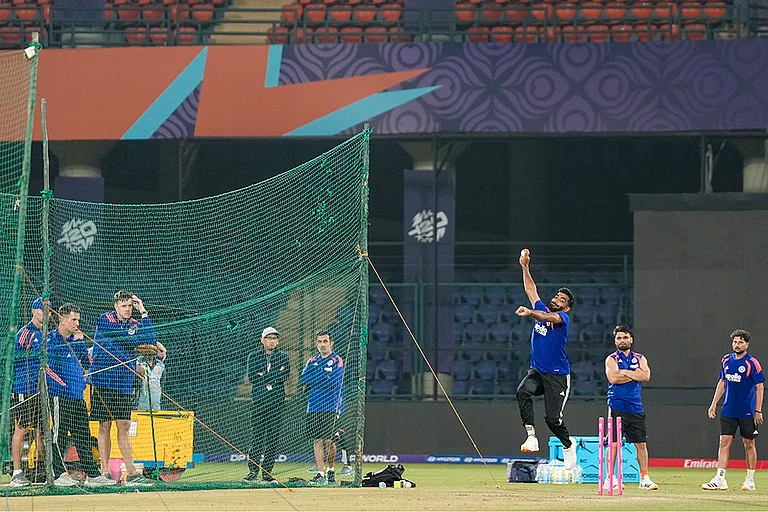Among the Kharia tribals of Jharkhand, she's a veritable Mahashweta Devi. Someone who's fighting untiringly for their empowerment and the preservation and development of their language and culture. Professor Rose Kerketta - the lone Kharia woman activist in the region - is the only teacher of Kharia language in the post-graduate department of Ranchi University. And it was due to her efforts that Kharia was introduced in the department of tribal and regional languages in the university.
Kharia is one of the five tribal groups residing in the tribal areas of Bihar, Bengal, Orissa and Madhya Pradesh. "Earlier, while there was a provision for the study of all the other four (Mundari, Kurukh, Santhal and Ho) tribal languages in the university, Kharia was not included. So, being a Kharia tribal I tried to fight for it and the language was subsequently introduced in 1982 and since then I'm teaching the language single-handedly," says the professor. Now, Rose teaches the grammar and importance of Kharia language and literature to the 40 students in her department. But her activities are not restricted to the classroom. Rose also regularly visits parts of Orissa, West Bengal and interiors of Jharkhand where the Kharia people live in scattered pockets and holds classes and meetings with them about the importance of their traditions, culture and literature.
According to her, the total population of the Kharia tribe today is about 5 lakh. What concerned her most was the gradual erosion of the originality of Kharia culture due to the migration of the tribals into cities and towns. "When I initially approached them and talked about the preservation of their culture, many of them asked me 'Why does Kharia need to be preserved?' They felt the language didn't help them in getting jobs or even competing in exams. But when I convinced them that all could be done while preserving their language, they soon realised the fact and things started looking up," explains the sexagenarian professor. Rose's dedication and continuous efforts have already made a difference - now programmes in the Kharia language are being broadcast on the radio and in regional TV programmes. The Tribal Research Institute has also taken notice and started publishing books in Kharia. "What soothes me most is that the Kharia tribals now talk about their language, literature and culture. They have also started celebrating their traditional tribal festivals with much fanfare and gaiety," chuckles Rose.
To add to the body of literature available in Kharia, Rose has translated a collection of Munshi Premchand's stories besides a translation of her own thesis in Kharia. She's also co-authored some of the books written in Kharia. Putting her language crusade in historical perspective, Rose goes back to the '40s and '50s when Christian missionaries were emphasising the learning of mother languages in the tribal region of the Chhotanagpur plateau. Subsequently, a committee was set up to formulate the curriculum in the five tribal languages upto Class V. Rose's father, Pyare Kerketta, a Kharia linguist and school teacher, was one of the committee members. With this family link, Rose had an early initiation into the fight for the revival of the Kharia language. In fact, her first story in Kharia was published in the then sole Kharia magazine when she was in school.
Rose emphasises the inspirational role her father played in the Kharia's cultural revival. "He was a great linguist and scholar of Kharia besides being a great freedom fighter. It was he who inculcated me with a sense of respect for the traditional Kharia language and literature," she says. Now, although Rose's retirement is due in December, she's already made plans to continue her work for the preservation of this tribal culture. Says she, "I've decided to concentrate on the region of eastern Singhbhum where Kharias have migrated in large numbers to towns and have thus become mixed." In the absence of any government help, Rose is really a one-woman army fighting for the revival and rejuvenation of her cultural tradition. "I'll not rest until my task is finished," she declares determinedly. Prof Rose Kerketta can be contacted at Cheshire Home Road, P.O. Bariyatu, Ranchi-9; phone 0651-541681.
























